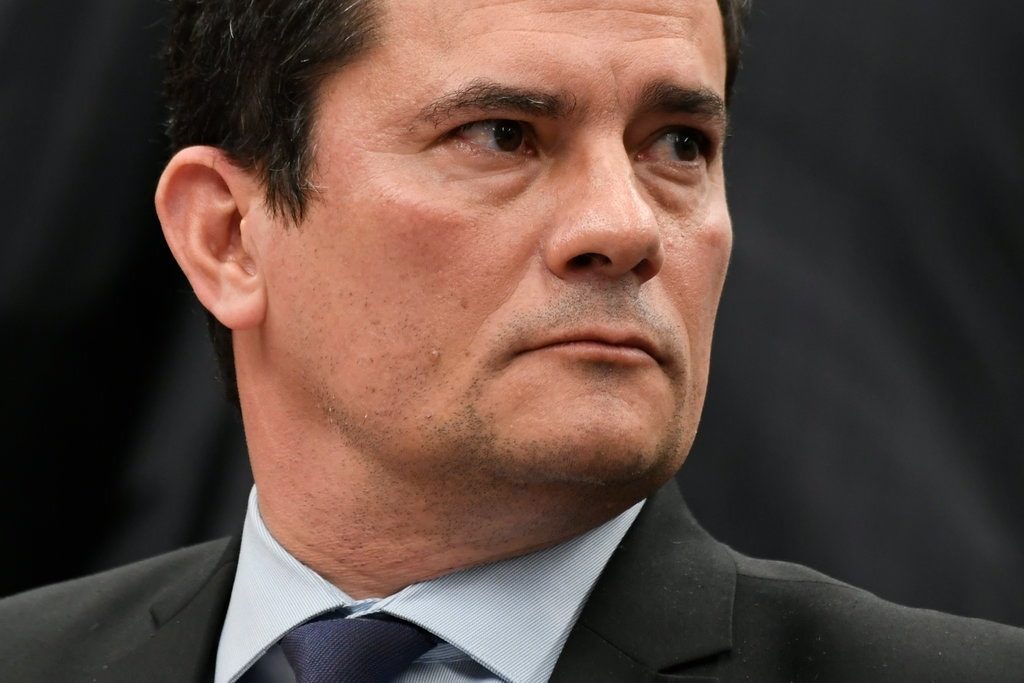
Brazil’s Operation Car Wash was supposed to overthrow the country’s culture of graft. Instead, it’s brought corruption into the heart of the state.
The New York Times
Jul. 5, 2019
by Vanessa Barbara
Contributing Opinion Op-ed Writer
SÃO PAULO, Brazil — On the surface, “Operation Car Wash” has been a virtuous crusade against political corruption in this country.
Over the last five years, this federal investigation has uncovered vast kickback schemes involving Brazil’s most important executives and politicians. The operation has led to the criminal prosecution of 429 individuals and the conviction of 159 of them. News outlets have eagerly covered each step of the investigation, pushing for and praising the overthrow of a culture of graft in Brazilian politics. The investigation should, in theory, be a source of pride for our young democracy — only this is not the whole story.
From the beginning, Operation Car Wash resorted to questionable procedures, such as using pretrial detentions to force confessions and relying too heavily on generous plea-bargain deals. But these didn’t seem enough to dismiss its efforts against wide-scale corruption, at least in the public’s eye.
Then, on June 9, the news site The Intercept Brasil published the first in a series of reports casting doubts on the integrity of the main actors within the investigation. The journalists obtained, from an anonymous source, a massive archive of private texts, exchanged over the message service Telegram, between federal prosecutors and the main judge in Operation Car Wash, Sergio Moro. (We’ll come back to him later.)
The leaked messages show that Mr. Moro often overstepped his role as a judge — someone who is supposed to be impartial and free from bias — to act as a consigliere for the prosecution. He offered strategic advice to prosecutors: they should, for example, reverse the order of various phases of the investigation; think again about a particular motion they were planning to file; speed up certain processes; slow down many others. Mr. Moro passed on information about a potential new source to the prosecution; scolded prosecutors when they took too long to stage new raids; endorsed or disapproved of their tactics; and provided them with advance knowledge of his decisions.
The revelations have shed new light on Mr. Moro’s conviction of former President Luiz Inácio Lula da Silva, in 2017. (In Brazil, jury trials are restricted for offenses against life, such as homicide and infanticide. In other criminal cases, the same judge who oversees the investigation is also the one who judges and sentences the accused.) The left-wing politician, who ruled the country from 2003 to 2010, is currently in jail, having been convicted on charges of corruption and money laundering. He was deemed ineligible to run for president precisely at a time when polls showed him to be the front-runner in the 2018 race. Mr. da Silva’s convenient detention cleared the way for the election of the far-right Jair Bolsonaro, who then — wait for it — gracefully appointed Mr. Moro as Brazil’s justice minister.
According to material published by the news site The Intercept Brasil, over the course of the investigation, Mr. Moro meddled in matters of press coverage and worried about how to get the public’s support for the prosecution. “What do you think of these crazy statements from the PT national board? Should we officially rebut?” he once asked federal prosecutor Deltan Dallagnol, referring to a statement by Mr. da Silva’s Workers’ Party in which the indictment was deemed a political persecution. Notice the use of the word “we” — as if Mr. Moro and Mr. Dallagnol are on the same team.
This is all, of course, highly immoral — if not downright illegal. It violates nothing less than the Universal Declaration of Human Rights, which says: “Everyone is entitled in full equality to a fair and public hearing by an independent and impartial tribunal, in the determination of his rights and obligations and of any criminal charge against him.” Under Brazil’s Criminal Procedure Code, judges are supposed to be neutral arbiters and cannot give advice to any of the parties in a case. Mr. Moro also violated many provisions of the Brazilian Code of Judicial Ethics, particularly one that says the judge should maintain “an equivalent distance from the parties,” avoiding any kind of behavior that may reflect “favoritism, predisposition or preconception.”
When the leaks were first reported, the Car Wash task force and Mr. Moro did not dispute the authenticity of the material, arguing instead, per Mr. Moro, that the messages showed “no sign of any abnormality or providing directions as a magistrate.” He also expressed dismay at the “lack of indication of the source of the person responsible for the criminal invasion of the prosecutors’ cellphones” — even though The Intercept’s reasons for not disclosing its source are obvious.
After a few days, though, Mr. Moro changed strategies. He started to question the authenticity of the messages, which, in his opinion, could have been tampered with. During a Senate hearing on June 19, in an apparent attempt to confuse either us or himself, he tried out both explanations at the same time: If a certain message “is authentic,” he said, “even if it is authentic, the content is absolutely legal. There is no problem with that kind of statement. If that message is totally authentic. Like I said: I cannot remember three years ago if I sent a message of that nature.”
(By the way, my favorite excerpt from the leaked material is an exchange between Mr. Moro and Mr. Dallagnol. In the message, Mr. Dallagnol informs Mr. Moro that he has submitted a petition as a strategic move but that it is “not essential.” Mr. Moro, Mr. Dallagnol says, should “feel free, needless to say, to deny” the request. I admire the politeness of the prosecutor here, who doesn’t want to seem too pushy and even offers the judge the choice of ruling freely, this time.)
In addition to the legal collaboration of Mr. Moro, the texts also reveal other offenses, such as the fact that the prosecutors discussed strategies to prevent Mr. da Silva from giving interviews from jail before the elections, since this could help the Worker’s Party candidate, Fernando Haddad.
All in all, the leaks reveal an immoral judge, who teamed up with electorally-motivated prosecutors, in order to arrest and convict individuals that they already considered guilty. Their only question was how best to do it.
The shocking content of these exchanges could give defense lawyers new grounds on which to appeal convictions. Last year, Mr. da Silva’s lawyers appealed to the Supreme Court and demanded a retrial, making the argument that Mr. Moro had failed to be impartial; the leaked messages have now been added to the petition, strengthening their case.
The Brazilian Bar Association has called for the suspension of those involved in the scandal, saying, in a written statement, that “The gravity of the facts cannot be disregarded, requiring a full, unbiased and impartial investigation.”
But almost a month has passed since The Intercept’s first reports. Effectively nothing has been done.
And incredible as it may seem, Sergio Moro is still our justice minister.
Vanessa Barbara is the editor of the literary website A Hortaliça, the author of two novels and two nonfiction books in Portuguese, and a contributing opinion writer.
A version of this article appears in print on July 8, 2019, on Page A23 of the New York edition with the headline: When the Anti-Graft Crusaders Are Dirty.

